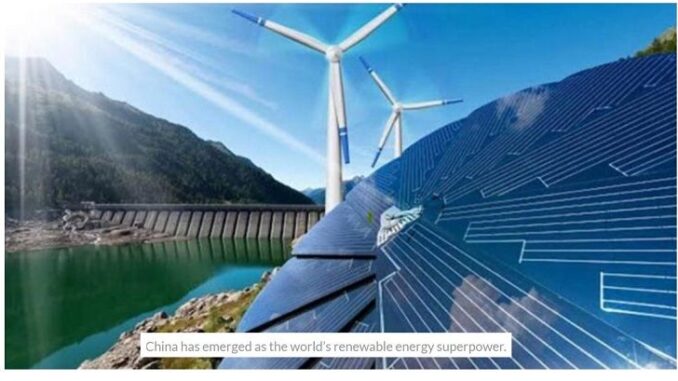
Seven years seems a lifetime in politics. In 2017, President Donald Trump announced the United States would withdraw from the Paris Agreement. It prompted Canada, China and the European Union to convene an urgent meeting to reaffirm political commitment to global climate action.
The successful meeting became an annual event which, this week, took place in Wuhan, China – just as the prospect of another Trump presidency looms large.
At this year’s the invitation-only meeting of climate ministers and senior officials from nearly 30 countries the group gathered to progress global climate negotiations in the lead-up to the next United Nations climate conference (COP29) in Baku, Azerbaijan. Setting stronger emissions reduction targets should send clear signals for investment, which has been lagging in some countries – but not China.
China is making remarkable progress in the transition from fossil fuels to renewable energy. Analysts have observed record growth in solar and wind – reducing coal’s share in electricity generation – alongside a boom in manufacturing of low-carbon technologies, including batteries and electric vehicles.
All of this means China’s greenhouse gas emissions may have peaked, which would be great news for the planet.
China’s quiet approach to climate diplomacy
China clearly wants to play more of a global leadership role in the energy transition, and has also put pressure on its own industries and firms to take climate action. China’s decision to host this week’s meeting, and others, reflects this aspiration.
Earlier this month, China hosted a five-day meeting of “like-minded developing countries” in Shandong. Then there was a “BASIC” ministerial meeting on climate action with Brazil, India and South Africa last weekend.
The big meeting this week was formally known as the 8th Ministerial on Climate Action. It involved in-depth discussions on issues surrounding COP29 and COP30, strengthening international cooperation and promoting energy transition.
The transition to a low-carbon economy requires structural changes that are both politically difficult and time-consuming. But China’s efforts to develop the technology for renewable energy revolution are starting to bear fruit, as outlined in the full article covering electricity, transport, and the steel industry (see link below).
Given the uncertainty surrounding the US election in November, China’s steady hand in climate diplomacy is welcome.
Edited extract from:
The Conversation (Australian edition), July 26, 2024. https://theconversation.com/china-still-the-worlds-biggest-emitter-but-also-an-emerging-force-in-climate-diplomacy-235311